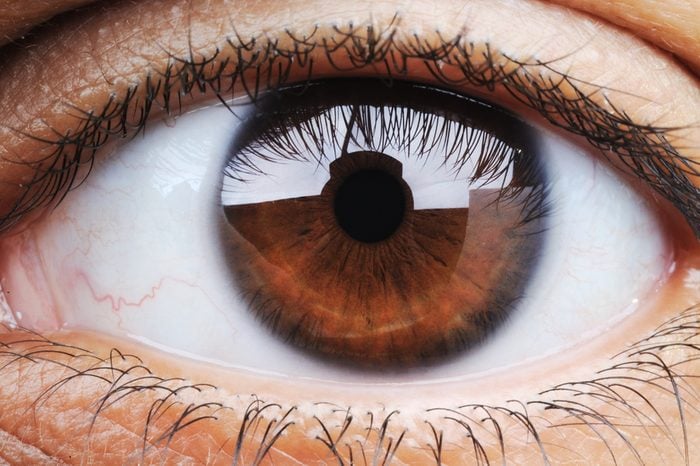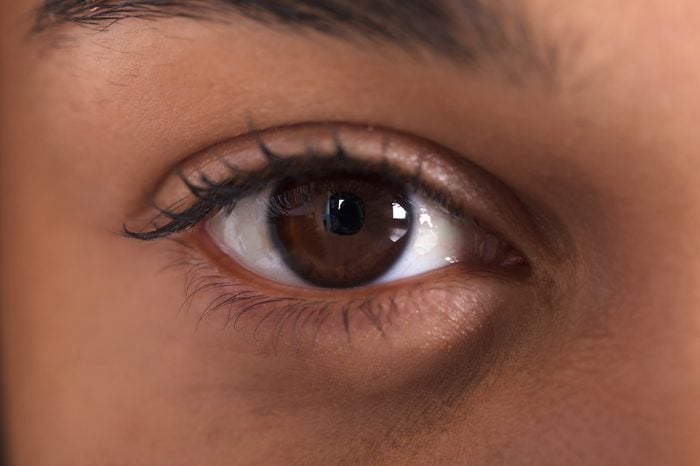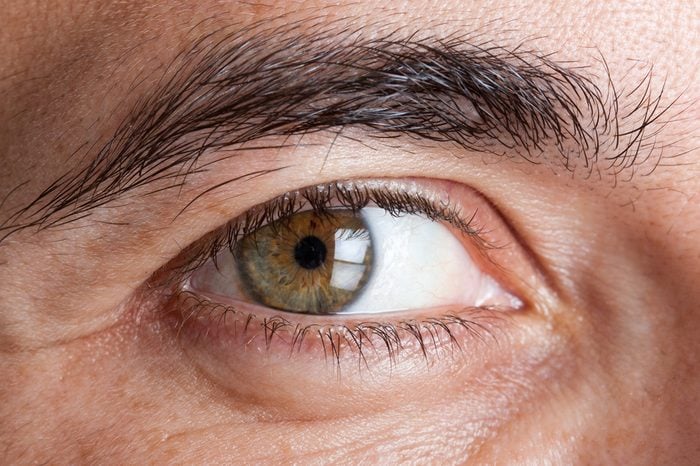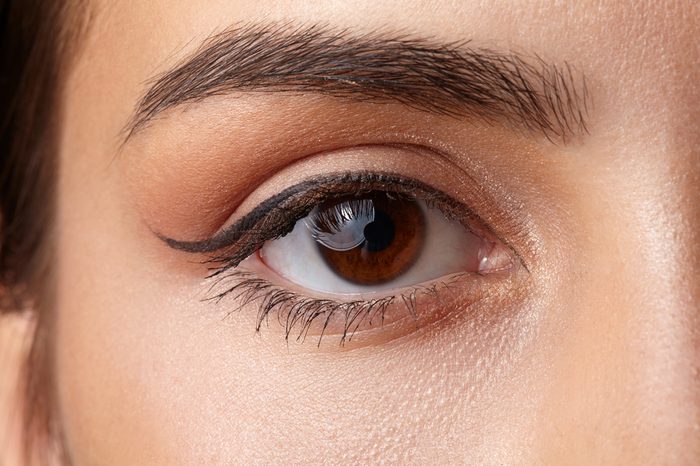Your eyes reveal a lot about your health
Your eye color is mostly determined by the luck of genetic draw. Although there are things you can do to improve your eyesight and keep your eyes healthy, there’s not much you can do to change your eye color. However, your iris color might reveal more about your health than you think. Here’s what you need to know about dark and light eyes, and all the shades in between.

Dark eyes: May be less likely to have macular degeneration
Your eye color can give insight into your overall eye health. “A dark iris blocks more ultraviolet light,” says Christopher Quinn, OD, the president of Omni Eye Services in Iselin, New Jersey, and the secretary-treasurer of the American Optometric Association. “UV light is a risk factor for macular degeneration. Extra light that gets into the eyes of people with light-colored irises may cause them to have more retinal degeneration.”

Dark eyes: May have a lower melanoma risk
Dark-colored irises might indicate you have a lower risk of the skin cancer melanoma. In a study published in Cancer Epidemiology, Biomarkers & Prevention, researchers took DNA samples and gathered sun exposure data from nearly 500 white children, ages six to 10, for four years. Children with the blue eye gene were more likely to develop moles compared to children without the gene. (The number of moles people develop during childhood can predict the risk of melanoma in adulthood.) Other research has found that people with blue or green eyes are at greater risk of melanomas of the eye, most likely because they have less light-absorbing pigment to shield the eyes from sun damage. No matter your eye color, though, it’s always a good idea to protect your eyes with sunglasses that block 99% to 100% of ultraviolet radiation or UV-absorbent contact lenses, says Quinn.
If You Have Blue Eyes, You’re Related to a Lot More People Than You Thought

Light eyes: May be less likely to have vitiligo
In a University of Colorado School of Medicine study, researchers tracked nearly 3,000 people with vitiligo, an autoimmune disease in which a person’s immune system attacks healthy pigment cells and causes skin blotches. Researchers identified 13 genes linked to a predisposition to vitiligo. They found that people with the disease were less likely to have blue or gray eyes than those without it. Of the vitiligo patients who were all of Non-Hispanic European ancestry, 43% had dark eyes, 30% had green or hazel eyes, and 27% had blue or gray eyes. This differed from the typical eye color distribution seen in Americans of Non-Hispanic European descent who do not have vitiligo, in which 52% tend to have blue or grey eyes and only 27% have brown or light brown eyes. People with vitiligo are at higher risk for other autoimmune diseases such as lupus, type 1 diabetes and thyroid disease.

Dark eyes: May drink less alcohol
In a Georgia State University analysis of 12,000 white men and women, researchers found that people with light eyes drank more alcohol and were more likely to abuse it than people with dark eyes. (They looked at data from one study in roughly 10,000 male prisoners and a second from a survey of about 1,800 women.) But, why the link? Researchers hypothesize that it could be due to melanin, the pigment that makes eyes darker. Melanin is involved in electrical connections between brain cells. If the amount of melanin in the eye (dark-eyed people have more) correlates with the amount of melanin in the brain, it could mean dark-eyed people are more sensitive to stimuli like alcohol, which means they may get tipsy off less alcohol than light-eyed people do (and therefore less likely to drink to excess). Still, more research is needed. “People with light irises drink more, that’s an undeniable conclusion of this study,” says Quinn. “What’s harder to say is whether it’s the iris color that determines if people drink or don’t drink. It shows an association, not a causal relationship.”
